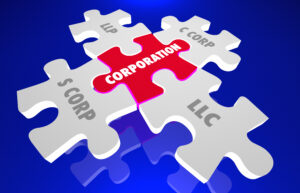Lawmakers Vote To Make Three Tax Provisions for Businesses Permanent
Late last year lawmakers in Washington extended a bill that made three important tax provisions for businesses valid through December 31, 2014. That means those provisions were good for last year’s taxes, but expired when the clock struck midnight on January 1, 2015. The extension was welcome news last year for many businesses. Now there is more good news, as Congress recently voted to make those provisions permanent with a new bill: HR 636.
The three provisions in question are Section 179, Section 1374 and Section 1367(a)(2). With the Section 179 provision taxpayers would permanently be allowed to expense up to $500,000 in qualified assets, instead of just a mere $25,000 without the provision. That is a huge break for many businesses.
Provision Section 1374 has to do with corporations and how they pay taxes. S Corporations typically don’t pay corporate–level taxes. However, C corporations do pay those taxes. When a C corporation chooses to become an S corporation it and purges its assets within a 10-year period it must pay a tax on those gains. However, with Provision 1374 in place the waiting period is cut in half to just five years.
It used to be that when an S Corporation donated appreciated property to a charity it qualified for a fair market value deduction. The shareholders were then required to reduce their basis in the S Corporation’s stock. However, under the Section 1367 provision, those shareholders simply have to reduce their basis according to their share of the adjusted basis of the property that was donated.
If these provisions are passed and become law, they would greatly benefit small businesses. By knowing these provisions are permanent year-round, businesses would be able to better plan their purchases and sales throughout the year. Hopefully this bill is passed by the Senate and signed by the president.
Tax S-corporation
Saving Taxes with an S Corporation An S corporation election allows the shareholders to preserve the benefit of limited liability for the corporate form while at the same time being treated as partners for federal income tax purposes. Ever wondered why so many small businesses operate as an S corporation? Simple. An S corporation saves…
Sec1045 Partnerships
Sec1045 Partnerships This document contains final regulations relating to the application of section 1045 of the Internal Revenue Code (Code) to partnerships and their partners. These regulations provide rules regarding the deferral of gain on a partnership’s sale of qualified small business stock (QSB stock) and a partner’s sale of QSB stock distributed by a…
Sec179 Businessequipment
Updated: 11/12/10 Most new business equipment can be either depreciated over its useful life or expensed immediately under Internal Revenue Code Section 179. The maximum deduction is based on the following schedule for the date in which the tax year begins. Each 1040, whether Single or Joint, is limited to one maximum. 179 expenses passed…
Sec1244 Small Business Stock Sales
Sec1244 Small Business Stock Sales Section 1244 of the Internal Revenue Code, the small business stock provision, was enacted to allow shareholders of domestic small business corporations to deduct as ordinary losses, losses sustained when they dispose of their small business stock. In order to receive this beneficial treatment, the Code prescribes specific requirements for:…



